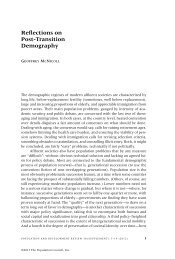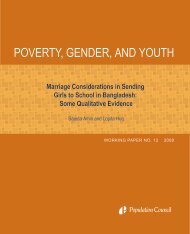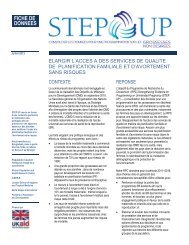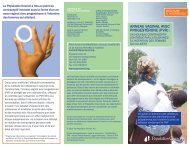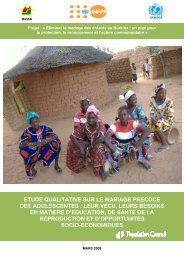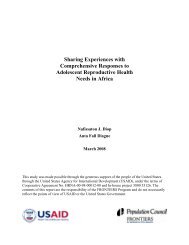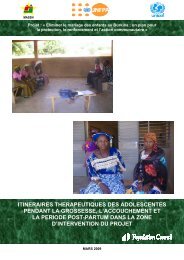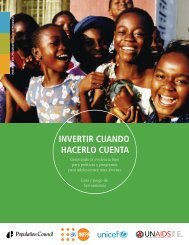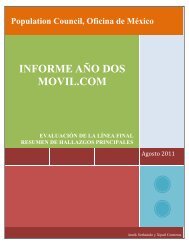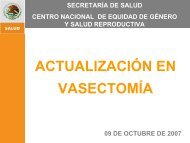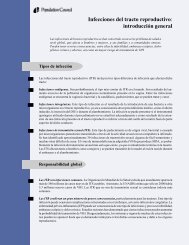Community Health Volunteer's Training Manual - Population Council
Community Health Volunteer's Training Manual - Population Council
Community Health Volunteer's Training Manual - Population Council
You also want an ePaper? Increase the reach of your titles
YUMPU automatically turns print PDFs into web optimized ePapers that Google loves.
Module 1 The CHPS Concept<br />
Topic 1 Definition of conflict<br />
68<br />
What is conflict<br />
Whenever two people or a group of people do not agree about an issue and are unable<br />
to resolve it amicably such that the two parties are satisfied with the solution, a conflict<br />
situation can result. For example, two volunteers may be in conflict over the use of funds for<br />
the construction of a CHPS compound. Two communities may disagree on where to house<br />
a health facility.<br />
Therefore any situation where there is disagreement that prevents two groups from<br />
communicating all together, or communicating ineffectively which retards individual and<br />
group progress is a conflict situation. Anecdotal evidence shows that most conflicts start<br />
without people knowing how it started. Rumours – ‘Yεsi! Yεsi!, Akεε! Akεε!, Wobe! Wobe!;<br />
Bawi!, Bawi!; They say…They say ‘ – has caused many conflicts. Watch out for rumours in<br />
your teams and quench them the right way!<br />
Exercise 1.5.1 Conflicts<br />
Objective<br />
1. To identify personal and community conflicts<br />
and how they affect community health work<br />
Time 15 minutes<br />
Questions<br />
1. What was the conflict and how did it come<br />
about?<br />
2. Which groups or persons were involved?<br />
3. How did it affect the groups in conflict?<br />
4. How did it affect the health situation/work in<br />
the community?<br />
5. How did they resolve the conflict?<br />
Instructions to the facilitator<br />
1. Help the groups to identify<br />
and discus personal and<br />
community conflicts that<br />
have affected communities<br />
2. List them and use the<br />
questions on the left as<br />
guide.<br />
3. Guide them to list all the<br />
methods they used to<br />
resolve the conflicts.<br />
So what is conflict and how do we view it? Below are some definitions of conflicts.<br />
1. Organisational conflict is a disagreement between two or more groups or organisational<br />
members who must work with each other, two groups who have differing goals, values,<br />
perceptions or status.<br />
2. Conflict means to disagree over something: a fight or an argument between two people,<br />
group or countries (paraphrased from Longman’s Pocket English dictionary, 2001)<br />
At the mention of ‘conflict’ everyone thinks of the negative aspects of it. We think of it<br />
as synonymous with violence, destruction and irrationality. Many of us think conflicts<br />
are caused by trouble makers, people who want to change the current situation, or by<br />
disgruntled people in a group.



